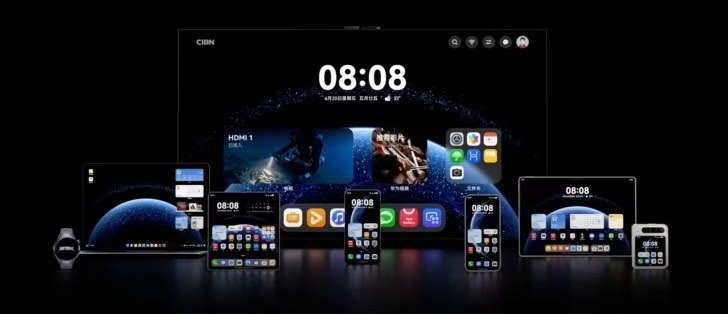Huawei's HarmonyOS 6: A Deeper Dive into AI Agents and Cloud Evolution
It's been quite a week in the tech world, hasn't it? Huawei, a company that never seems to shy away from pushing boundaries, has once again captured headlines by opening HarmonyOS 6 to developers. This isn't just another incremental update; it's a significant step forward, particularly with the emphasis on advanced AI agents and substantial cloud architecture enhancements. For those of us who've been tracking Huawei's journey since the initial U.S. sanctions, this move feels like another confident stride towards building out their independent ecosystem.
The Developer's New Playground: HarmonyOS 6 Beta
The buzz started at the Huawei Developer Conference (HDC) 2025, where the company officially announced the developer beta for HarmonyOS 6. Right now, it's accessible for developers with eligible devices, primarily from the Mate and MatePad series. This early access is crucial, allowing developers to really get under the hood, test their applications, and fine-tune them for what Huawei promises will be a more intelligent and open operating system. It's a smart play, really, getting the dev community on board early to iron out kinks and explore new possibilities.
The Rise of AI Agents: Meet XiaoYi
Imagine you're planning a trip, and your phone, through XiaoYi, intelligently pulls up flight information, hotel deals, and local attractions based on your recent searches and calendar entries. It's a step beyond reactive commands, moving into a realm where the OS anticipates your needs. This kind of intelligent agent framework is something many tech giants are striving for, and Huawei's commitment here is a clear indicator of their AI ambitions. It's a fascinating area, and one that could truly differentiate HarmonyOS in the long run.
Fortifying the Foundation: Cloud Architecture and Security
An intelligent OS is only as good as the infrastructure supporting it, and HarmonyOS 6 brings significant updates to its underlying cloud architecture. This isn't just about faster data syncs; it's about enabling the seamless operation of those AI agents and ensuring a robust, scalable backend for the entire ecosystem. Cloud integration is no longer a luxury; it's a necessity for any modern operating system aiming for deep intelligence and cross-device functionality.
And then there's security. Huawei has introduced "Star Shield" security, a feature designed to enhance hardware-focused security and user privacy. In an age where data breaches and privacy concerns are constant headlines, this emphasis is not just welcome, it's essential. Users are increasingly wary of how their personal data is handled, and a strong, hardware-level security feature could certainly be a compelling selling point. It shows Huawei understands the critical importance of trust in building a sustainable ecosystem. Frankly, I think every OS should be shouting about their security features from the rooftops.
Ecosystem Expansion and Market Dynamics
HarmonyOS has already achieved impressive adoption numbers, with over a billion devices worldwide running on previous versions. That's a staggering figure, particularly given the challenges Huawei has faced. The release of HarmonyOS 6, with its intelligent agent framework and developer beta, is clearly designed to further accelerate this expansion. It's a strategic move to attract more developers and, consequently, more users.
In China, HarmonyOS 6 is expected to solidify Huawei's already strong position. Domestically, they have a loyal user base and significant government support. Globally, however, the landscape is more competitive. This release, especially its focus on AI and cloud, could appeal to markets where these technologies are highly valued. It's a continuation of the path laid by HarmonyOS NEXT, which marked a decisive shift away from Android. HarmonyOS 6 builds on that foundation, aiming for a more seamless and secure user experience, completely independent. It's a bold strategy, and one that has certainly paid off for them so far in their home market. But can it truly challenge the Android-iOS duopoly globally? That remains the million-dollar question.
Community Reception and Future Outlook
The initial reactions from the developer community have been largely enthusiastic, particularly regarding the new features and the potential of the AI agent framework. Experts are also taking note, highlighting that features like Star Shield could indeed differentiate HarmonyOS 6 from its competitors. There's a palpable interest in how this new OS will integrate with Huawei's existing hardware and software ecosystem, creating a truly unified experience across devices.
Of course, the real test will be in the widespread adoption by developers and, subsequently, by end-users. While the numbers in China are impressive, global market penetration will require sustained innovation and a compelling value proposition. But one thing is clear: Huawei isn't just surviving; they're innovating. And with HarmonyOS 6, they're making a strong statement about their vision for the future of intelligent operating systems. It's going to be interesting to watch this unfold.
